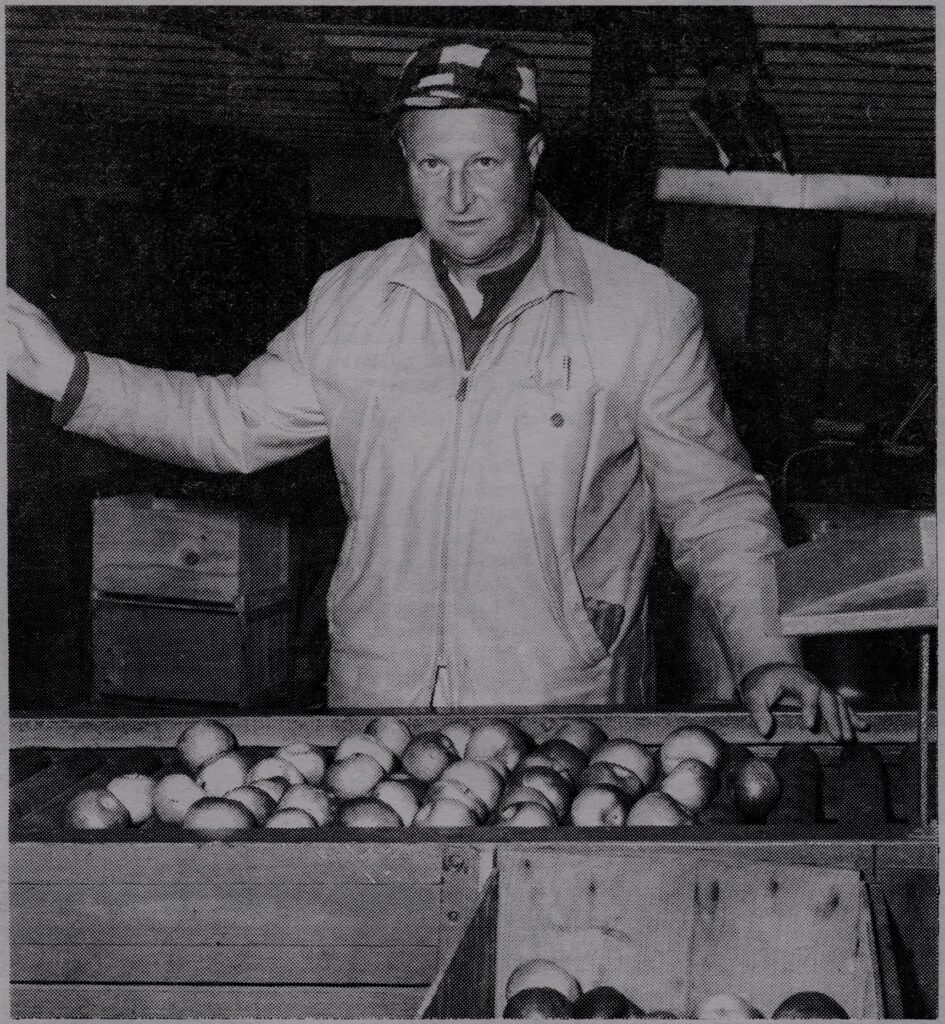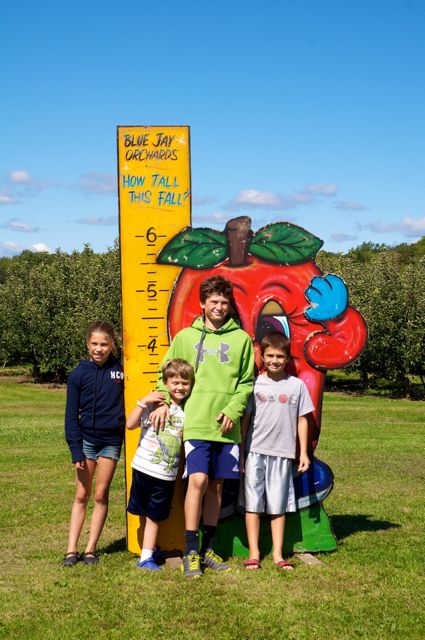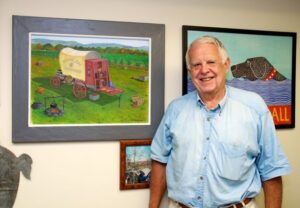
Robert Josephy, the founder of Blue Jay Orchards, is shown sorting apples in a Bethel Home News photo from 1966.
Blue Jay Orchards was originated by Robert S. Josephy in 1935.
In New England, this time of year, it has become a time-honored tradition for folks to venture out into the cool, crisp, autumn air and pay a family visit to their local orchard to buy apples, cider, pumpkins, pies, donuts, and perhaps enjoy an old-fashioned hayride. In Bethel, when people think of all those things, one name comes to mind – Blue Jay Orchards. Yet despite the level of familiarity and popularity, the orchard has possessed for so long, many are probably unfamiliar with the man who started it all – Robert Josephy.
Robert Josephy was not a local native. He was born in Far Rockaway, Queens, New York on July 11, 1903, at the summer home of his maternal grandfather. On his paternal side, he was the grandson of a German Jewish immigrant, Hugo Josephy, who came to America in 1861. His parents were Edward and Clarice Spero Josephy, and his father was employed in the poultry and produce business. The Josephy family lived at various locations in New York City and for a time spent summers in Far Rockaway, Long Island. They later moved to Flushing, New York. Robert attended the Hamilton Institute for Boys in New York City for a year and then was enrolled in the New Jersey Military Academy in Freehold, beginning at the age of ten. He attended Flushing High School for a short time but due to his poor performance, his parents once again enrolled him in a military school, this time the Bordentown Military Institute in New Jersey, from which he graduated in 1920.
In 1985, Josephy sold everything but his house, barn, and two acres to the present owner, Paul Patterson. On his eighty-eighth birthday in 1991, Josephy sold his home and moved to Hamden, Connecticut after having lived in Bethel for fifty-seven years. He wrote a farewell letter that was published in both the Danbury News-Times and the Bethel Home News. In the letter he acknowledged that he had often been outspoken and controversial in the political views he expressed over the years. He wrote: “I hope I will be remembered kindly. I know I have irritated some people, but the Bible says, ‘Woe unto you when all men shall speak well of you.’ I am not going very far away, but leaving the town that has been good to me for so long is not easy. I shall miss you all.”





